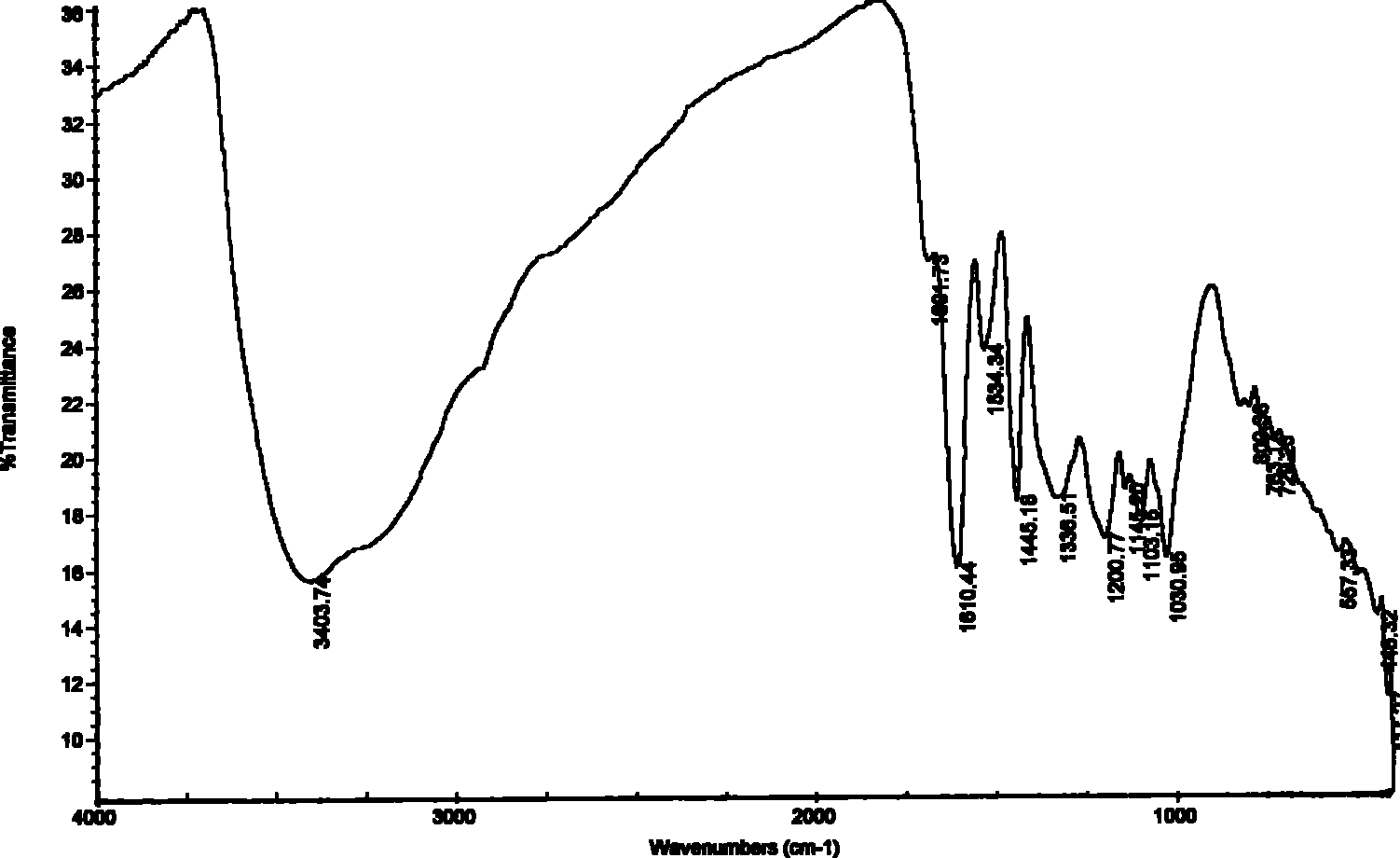Method of extracting natural oxidationresistant active substanceoil from orange tree bark
A technology of natural anti-oxidation and active substances, which is applied in the directions of antitoxins, drug combinations, and pharmaceutical formulations to achieve efficient utilization and rich sources.
Inactive Publication Date: 2010-08-25
INST OF CHEM IND OF FOREST PROD CHINESE ACAD OF FORESTRY
View PDF0 Cites 0 Cited by
- Summary
- Abstract
- Description
- Claims
- Application Information
AI Technical Summary
Problems solved by technology
Extracting natural antioxidant substances from emblica bark has not been reported at home and abroad so far
Method used
the structure of the environmentally friendly knitted fabric provided by the present invention; figure 2 Flow chart of the yarn wrapping machine for environmentally friendly knitted fabrics and storage devices; image 3 Is the parameter map of the yarn covering machine
View moreImage
Smart Image Click on the blue labels to locate them in the text.
Smart ImageViewing Examples
Examples
Experimental program
Comparison scheme
Effect test
Embodiment 1
Embodiment 2
Embodiment 3
the structure of the environmentally friendly knitted fabric provided by the present invention; figure 2 Flow chart of the yarn wrapping machine for environmentally friendly knitted fabrics and storage devices; image 3 Is the parameter map of the yarn covering machine
Login to View More PUM
 Login to View More
Login to View More Abstract
The invention relates to a method of extracting natural anti-oxidation active substance from plant materials, which discloses a method of extracting natural anti-oxidation active substance from oil orange tree bark. The method includes the following steps: (1) crushing; (2) extracting: the water is the solvent, the mass of the bark materials which have been crushed to the volume of water is 1 : 5g / ml to1: 10g / ml, the bark materials crushed are immersed in the water, the extracting solution is gained under the temperature ranging from 50 DEG C to 80 DEG C and under the effect of ultrasonic; (3) flocculating settling: the chitosan acetic acid solution is the flocculating agent; and the chitosan acetic acid solution is added into the extracting solution and stirred for 10 minutes to 30 minutes; (4) subzero fractionating: the extracting solution which is added with the flocculating agent is cooled and kept statically, the clear solution is extracted and the sediment is threw away; (5) theclear solution is added with 15 percent to 20 percent active carbon and 0.4 percent to 0.6 percent EDTA-2Na which are fixedly contained in the clear solution, the clear solution is filtered for the cleaning of the carbon after the clear solution is stirred for 0.5 hour to 1 hour, the filtrate is used as the upper-column liquid for the fractionation by adsorption of the resin; (6) fractionation byadsorption of the resin, by using desolvation, the powdered natural anti-oxidation active substance is gained by the vacuum freeze drying.
Description
technical field The invention relates to a method for extracting natural antioxidant active substances from plant materials, in particular to a method for extracting natural antioxidant active substances from the bark of Amla emblica. Background technique Emblica (Phyllantus emblica) has a wide distribution of resources in southern my country. The fruit of Emlica emblica has medicinal functions such as clearing away heat, cooling blood, invigorating digestion, invigorating the stomach, promoting body fluid and relieving cough, and inhibiting bacteria. It can be processed into food, beverages, health products, medicines and cosmetics. In recent years, the development and utilization of emblica resources mainly focus on the artificial cultivation and fruit processing and utilization of emblica. The bark of Amla emblica is rich in plant polyphenols, and its main component is a mixture (3:1) of partially citrusylated (about 25%) polymeric prodelphinidins-polymeric proanthocyan...
Claims
the structure of the environmentally friendly knitted fabric provided by the present invention; figure 2 Flow chart of the yarn wrapping machine for environmentally friendly knitted fabrics and storage devices; image 3 Is the parameter map of the yarn covering machine
Login to View More Application Information
Patent Timeline
 Login to View More
Login to View More Patent Type & Authority Patents(China)
IPC IPC(8): A61K36/47A61P39/06A61K129/00
Inventor 陈笳鸿汪咏梅吴冬梅吴在嵩徐曼
Owner INST OF CHEM IND OF FOREST PROD CHINESE ACAD OF FORESTRY
Features
- R&D
- Intellectual Property
- Life Sciences
- Materials
- Tech Scout
Why Patsnap Eureka
- Unparalleled Data Quality
- Higher Quality Content
- 60% Fewer Hallucinations
Social media
Patsnap Eureka Blog
Learn More Browse by: Latest US Patents, China's latest patents, Technical Efficacy Thesaurus, Application Domain, Technology Topic, Popular Technical Reports.
© 2025 PatSnap. All rights reserved.Legal|Privacy policy|Modern Slavery Act Transparency Statement|Sitemap|About US| Contact US: help@patsnap.com



